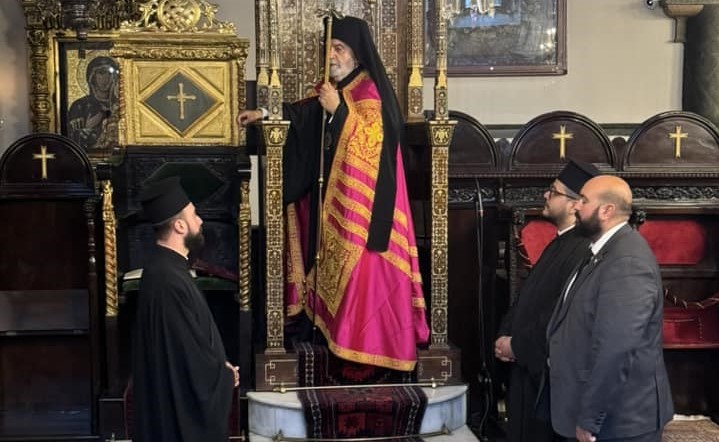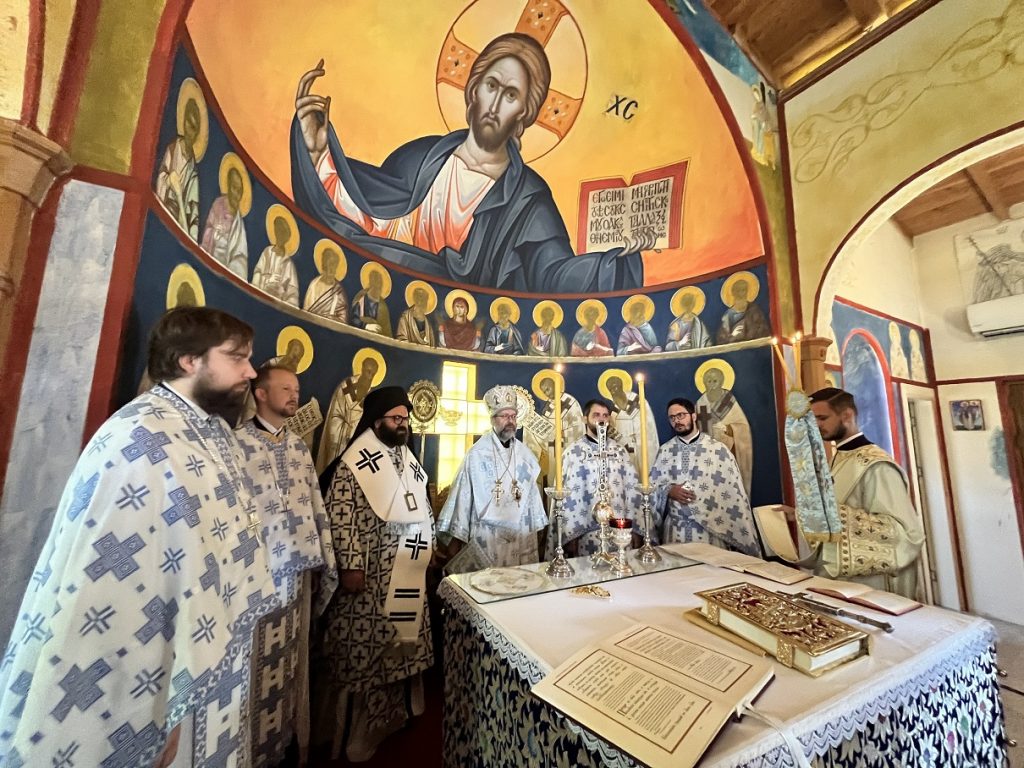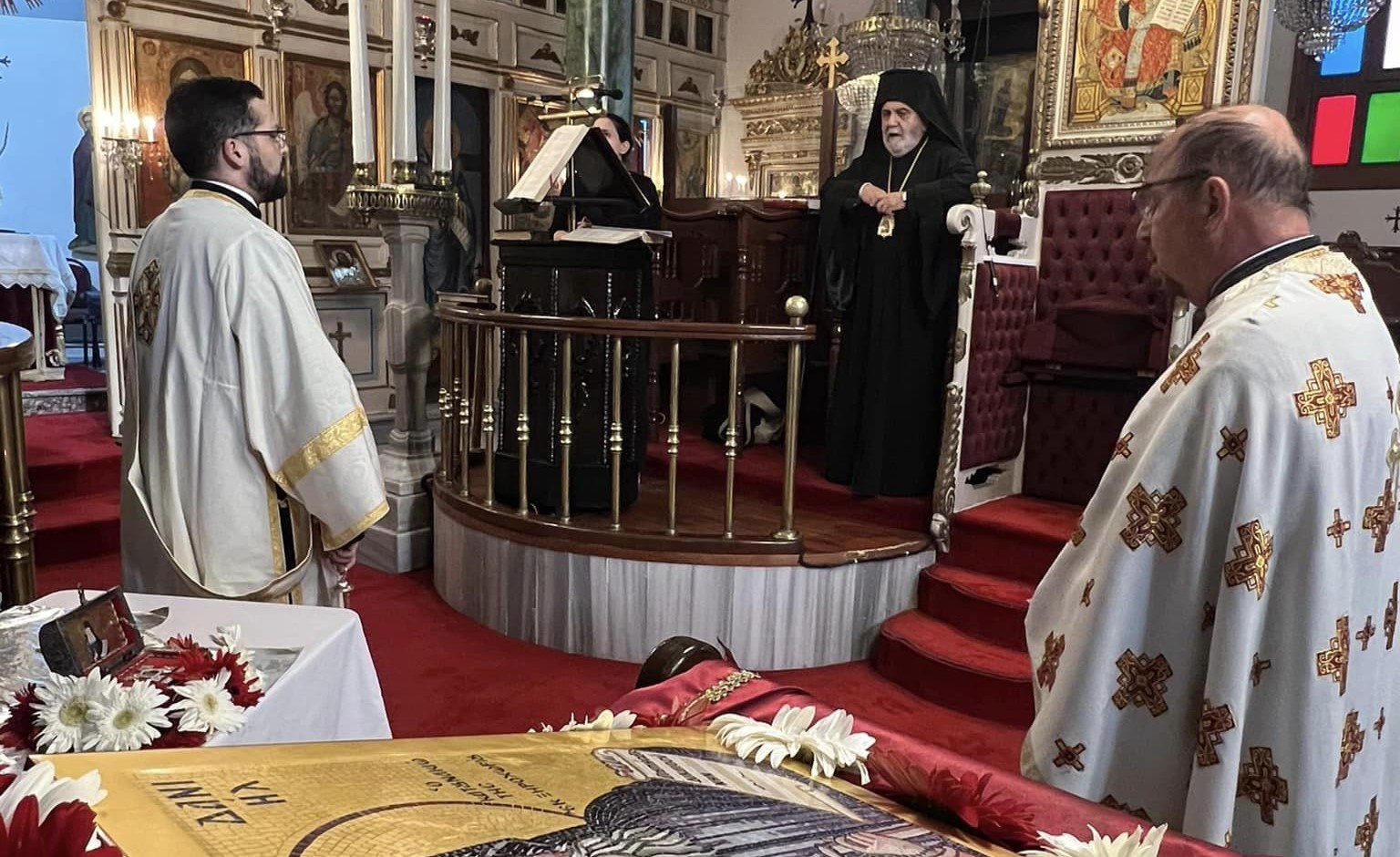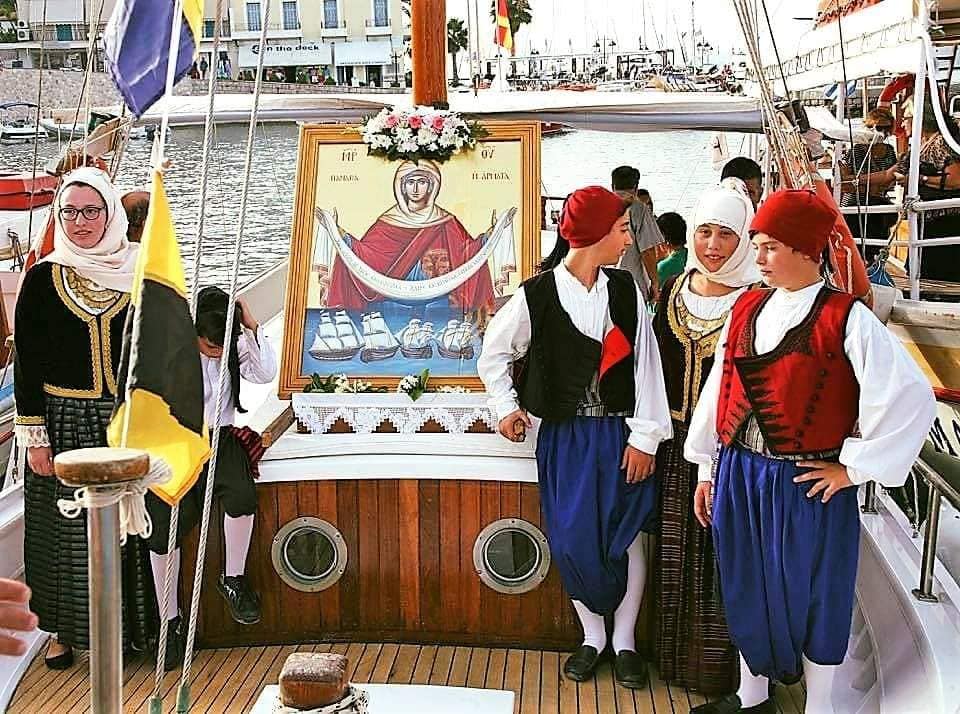Apostles Silas, Silvanus, Crescens, Epenetus and Andronicus of the Seventy (30 July)
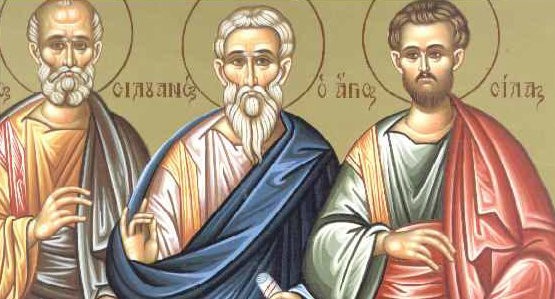

The Holy Apostle of the Seventy Silas was a disciple of the Saviour.
Saint Silas was a respected figure in the original Church at Jerusalem, one of the “chief men among the brethren” (Acts 15:22). The Council of the Apostles was convened at Jerusalem in the year 51 to deal with the question of whether Gentile Christian converts should be required to observe the Mosaic Law. The Apostles sent a message with Paul and Barnabas to the Christians of Antioch, giving the decision of the Council that Christians of Gentile origin did not have to observe the prescriptions of the Mosaic Law. Nonetheless, they were told that they must refrain from partaking of foods offered to idols, from things strangled and from blood, to refrain from fornication (Acts 15:20-29). Together with Saints Paul and Barnabas, the Council of the Apostles sent Saints Silas and Jude to explain the message in greater detail, since they both were filled with the grace of the Holy Spirit. Saint Jude was later sent back to Jerusalem, but Saint Silas remained at Antioch and zealously assisted Saint Paul, the Apostle to the Gentiles, on his missionary journeys preaching the Gospel. They visited Syria, Cilicia, and Macedonia.
The Holy Apostle of the Seventy Silvanus was a disciple of the Savior.
The Holy Apostle Silvanus preached the Word of God together with the chief Apostles Peter and Paul. In his First Epistle, the holy Apostle Peter makes mention of him: “By Silvanus, a faithful brother to you, as I suppose, I have written briefly…” (1 Peter 5:12). Saint Silvanus was made bishop at Thessalonica and died there a martyr, having undergone many sorrows and misfortunes for the Lord’s sake.
The Holy Apostle of the Seventy Crescens was a disciple of the Savior.
The Holy Apostle Crescens is mentioned by the holy Apostle Paul (2 Tim. 4:10), saying that Crescens had gone preaching to Galatia. He was made bishop there, and afterwards he preached the Word of God in Gaul (modern-day France). In the city of Vienna (modern Austria) the holy Apostle Crescens established his student Zacharias as bishop. Having returned to Galatia, he died as a martyr under the emperor Trajan (98-117).
The Holy Apostle of the Seventy Epenetus was a disciple of the Savior.
The Holy Apostle Epenetus was made bishop at Carthage. In his Epistle to the Romans, the holy Apostle Paul writes: “Greet my dear Epenetus, who is the firstfruits of Achaia unto Christ” (Rom. 16:5).
The Holy Apostle of the Seventy Andronicus was a disciple of the Savior.
The Apostle Andronicus is mentioned by Saint Paul: “Salute Andronicus and Junia, my kinsmen, … who are of note among the Apostles, who also were in Christ, before me” (Rom. 16:7). The holy Apostle Andronicus was bishop in Pannonia (modern-day Hungary).
Saints Andronicus and Junia are also commemorated on May 17.
In the city of Philippi they were accused of inciting unrest among the people, and for this they were arrested, beaten with rods, and then thrown into prison. At midnight, when the saints were at prayer, suddenly there was a strong earthquake, their chains fell off from them and the doors of the prison opened. The prison guard, supposing that the prisoners had fled, wanted to kill himself, but was stopped by the Apostle Paul. Then, he fell down trembling at the feet of the saints, and with faith accepted their preaching about Christ. He then led them out of the prison and took them to his own home, where he washed their wounds, and was baptized together with all his household.
From Philippi Saints Paul and Silas proceeded on to the cities of Amphipolis, Apollonia and Thessalonica. In each city they made new converts to Christ and built up the Church.
At Corinth the holy Apostle Silas was consecrated as bishop, and worked many miracles and signs, and there he finished his life.
They were numbered among the Seventy Apostles. St. Silas was sent from Jerusalem to Antioch with Paul and Barnabas to settle the dispute between the faithful there regarding circumcision: namely, whether or not it was necessary to circumcise pagans when they convert to Christianity. Then pleased it the apostles and elders, with the whole Church, to send chosen men of their own company to Antioch with Paul and Barnabas; namely, Judas surnamed Barsabas, and Silas, chief men among the brethren (Acts 15:22). After this, Silas traveled with Paul throughout Asia and Macedonia, and was appointed as the bishop in Corinth, where he died peacefully.
St. Silvanus assisted both of the Chief Apostles. By Silvanus, a faithful brother unto you, as I suppose, I have written briefly, exhorting, and testifying that this is the true grace of God wherein ye stand (1 Peter 5:12); For the Son of God, Jesus Christ, Who was preached among you by us, even by me and Silvanus and Timotheus, was not yea and nay, but in him was yea (2 Corinthians 1:19). As Bishop of Thessalonica, Silvanus labored much and suffered much, until he finally exchanged this earthly life for the heavenly life.
St. Crescens was a companion of the Apostle Paul and then Bishop of Galatia and a missionary in Gaul–where he died as a martyr for Christ during the reign of Emperor Trajan. For Demas hath forsaken me, having loved this present world, and is departed unto Thessalonica; Crescens to Galatia, Titus unto Dalmatia (2 Timothy 4:10).
St. Epaenetus is mentioned by the Apostle Paul and was Bishop of Carthage. Salute my well beloved Epaenetus, who is the firstfruits of Achaia unto Christ (Romans 16:5).
St. Andronicus, Bishop of Pannonia, is also commemorated separately on May 17. Salute Andronicus and Junia, my kinsmen, and my fellow prisoners, who are of note among the apostles, who also were in Christ before me (Romans 16:7).
Saint Silas was a companion and fellow labourer of the Apostle Paul: “And Paul chose Silas and departed…and he went through Syria and Cilicia, confirming the churches” (Acts 15:40-41). He later became Bishop of Corinth, and reposed in peace. Saint Silvanos became Bishop of Thessalonica, and also reposed in peace. Saint Crescents, whom Saint Paul mentions in his Second Epistle to Timothy(4:10), became Bishop of Chalcedon, and brought many to the Faith. As for him whom the Apostle of the Nations praises as “my well-beloved Epenetus, the first-fruits of Achaia unto Christ” (Roman 16:5), he became Bishop of Carthage, and after enduring many afflictions from the idolators, and bringing many of them to Christ, he departed to the Lord.
Apolytikion of Silas, Silvan, Crescens, Epenetus and Andronicus of the 70
Third Tone
O Holy Apostles, intercede to our merciful God, that He may grant our souls forgiveness of sins.
Source: oca.org / goarch.org / westserbdio.org

